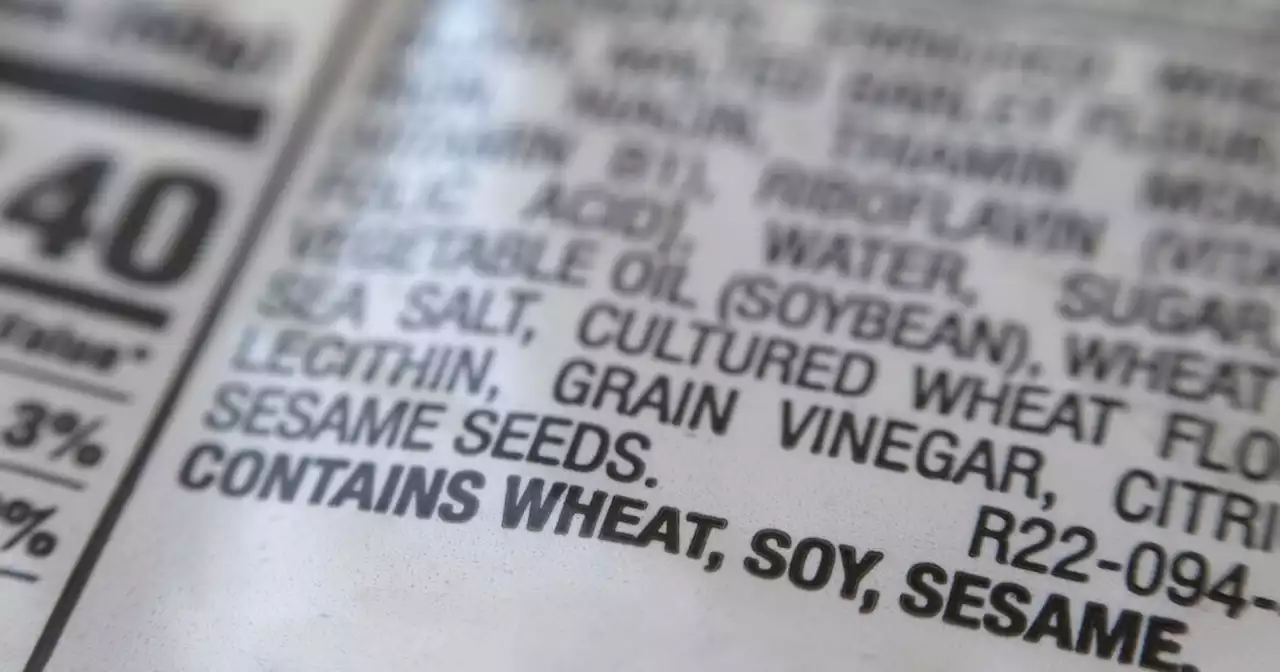A new federal law requiring that sesame be listed as an allergen on food labels is having unintended consequences — increasing the number of products with the ingredient.
Starting Jan. 1, all foods made and sold in the U.S. must be labeled if they contain sesame, an often-hidden ingredient that's been declared the nation's ninth major allergen.
“It was really exciting as a policy advocate and a mom to get these labels,” said Naomi Seiler, a consultant with the Asthma and Allergy Foundation of America whose 9-year-old daughter, Zoe, is allergic to sesame. “Instead, companies are intentionally adding the allergen to food.” More than 1.6 million people in the U.S. are allergic to sesame, some so severe that they need injections of epinephrine, a drug used to treat life-threatening reactions. Cases of sesame allergy have been rising in recent years along with a growing number of foods that contain the ingredient, said Dr. Ruchi Gupta, a pediatrician and director of the Center for Food Allergy & Asthma Research at Northwestern University.
Some companies include statements on labels that say a food “may contain” a certain product or that the food is “produced in a facility” that also uses certain allergens. However, such statements are voluntary, not required, according to the FDA, and they do not absolve the company of requirements to prevent cross-contamination.
United States Bakery, which operates Franz Family Bakeries in California and the Northwest, notified customers in March that they would add a small amount of sesame flour to all hamburger and hot dog buns and rolls “to mitigate the risk of any adverse reactions to sesame products.” Some large companies previously have added other allergens to products and updated their labels. In 2016, Kellogg's added traces of peanut flour to some cookies and crackers, prompting protests.
Österreich Neuesten Nachrichten, Österreich Schlagzeilen
Similar News:Sie können auch ähnliche Nachrichten wie diese lesen, die wir aus anderen Nachrichtenquellen gesammelt haben.
 New label law has unintended effect: Sesame in more foodsA new federal law requiring that sesame be listed as an allergen on food labels is having unintended consequences _ increasing the number of products that include the ingredient
New label law has unintended effect: Sesame in more foodsA new federal law requiring that sesame be listed as an allergen on food labels is having unintended consequences _ increasing the number of products that include the ingredient
Weiterlesen »
 New label law has unintended effect: Sesame in more foodsA new federal law requiring that sesame be listed as an allergen on food labels is having unintended consequences — increasing the number of products with the ingredient. Food industry experts said the requirements are so stringent that many manufacturers, especially bakers, find it simpler and less expensive to add sesame to a product — and to label it — than to try to keep it away from other foods or equipment with sesame.
New label law has unintended effect: Sesame in more foodsA new federal law requiring that sesame be listed as an allergen on food labels is having unintended consequences — increasing the number of products with the ingredient. Food industry experts said the requirements are so stringent that many manufacturers, especially bakers, find it simpler and less expensive to add sesame to a product — and to label it — than to try to keep it away from other foods or equipment with sesame.
Weiterlesen »
 New label law has unintended effect: sesame in more foodsA new federal law requiring that sesame be listed as an allergen on food labels is having unintended consequences — increasing the number of products that include the ingredient.
New label law has unintended effect: sesame in more foodsA new federal law requiring that sesame be listed as an allergen on food labels is having unintended consequences — increasing the number of products that include the ingredient.
Weiterlesen »
 Food producers now must label sesame as an allergen — and they're putting it in more foodsA new federal law is having unintended consequences by increasing the number of products that include sesame.
Food producers now must label sesame as an allergen — and they're putting it in more foodsA new federal law is having unintended consequences by increasing the number of products that include sesame.
Weiterlesen »
 Don't Miss New Orleans' Take On The Holidays And The New YearNew Orleans doesn't take the holidays lightly. Here's why you should spend at least one Christmas or New Year's Eve in the Big Easy.
Don't Miss New Orleans' Take On The Holidays And The New YearNew Orleans doesn't take the holidays lightly. Here's why you should spend at least one Christmas or New Year's Eve in the Big Easy.
Weiterlesen »
